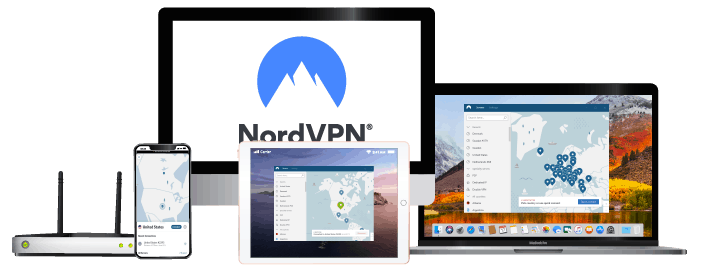SD-WAN vs. VPN
When it comes to optimizing network connectivity, two prominent technologies often spring to mind: SD-WAN (Software-Defined Wide Area Network) and VPN (Virtual Private Network). Both have surfaced as promising solutions in the modern world of remote work and heavy online data traffic. However, their application can be quite different based on the specific requirements of a business or an individual.
If I’m using a VPN like ExpressVPN, NordVPN, or Surfshark, my primary goal is usually safeguarding my privacy while navigating the web. VPNs serve as secure tunnels for transmitting data over public networks by encrypting all information sent through them. This encryption ensures that sensitive details remain hidden from prying eyes.
On the contrary, SD-WAN isn’t strictly about security; instead, it’s more about improving network performance and control across multiple locations in a WAN setup. An SD-WAN solution doesn’t necessarily include built-in security features like a VPN does; however, it provides more granular control over how network traffic is routed and prioritized – which can be crucial for businesses with distributed operations.
ExpressVPN
Overall score: 9.8
- 3,200 servers across 105 countries
- Works with streaming platforms
- AES 256-bit encryption
- Supports private protocol, Lightway
- Money-back guarantee
30-day money-back guarantee
NordVPN
Overall score: 9.6
- 8,700+ servers available in 129 countries
- Connect up to 10 devices simultaneously
- Great security features
- Verified no-logs policy
- Unblocks streaming platforms
30-day money-back guarantee
Surfshark
Overall score: 9.5
- 4,500+ servers in 100+ countries
- Allows unlimited simultaneous connections
- Integrates stealth mode
- Multihop feature available
- Webcam protection from unauthorized apps
30-day money-back guarantee
Proton VPN
Overall score: 9.4
- 17,250+ servers in 125 countries
- Free version available
- Strong security features
- Reliable no-logs policy
- Allows Perfect Forward Secrecy
30-Day Money-Back Guarantee
CyberGhost
Overall score: 9
- 9,300+ reliable servers in 100 countries
- 45-day money-back guarantee
- Strict no-log policy
- Tough security features
45-Day Money-Back Guarantee
Understanding SD-WAN: A Brief Overview
Picture this. You’re trying to connect your company’s multiple branches across the globe, and you’re weighing your options between traditional VPN solutions like ExpressVPN, NordVPN or Surfshark, and something called SD-WAN. You’re wondering, “What is SD-WAN? How does it differ from a VPN?” I’ve got your back! Let’s dive into understanding SD-WAN.
Software-Defined Wide Area Networking (SD-WAN) has been making waves in the world of networking for a while now. It’s an approach to managing wide area networks (WANs) that uses software-defined networking (SDN) principles to automatically determine the most effective way to route traffic between branch offices and data center sites.
Traditional WAN technologies often face challenges such as high costs, complexity in network management, and limited capabilities to handle today’s cloud-driven traffic. That’s where SD-WAN steps in! It not only provides more efficient connectivity but also offers superior performance when accessing cloud-based applications compared to traditional WAN products.
Now let’s address the elephant in the room – how does SD-WAN compare with Virtual Private Networks (VPNs)? While both serve similar purposes of connecting different sites over a broad geographic location securely, they differ significantly on several fronts:
- Routing: VPNs use static routing which means all internet-bound traffic has to be routed through a central hub leading to increased latency. On the other hand, SD-WAN makes use of dynamic path selection which allows it to route traffic based on current network conditions thereby reducing latency.
- Security: While both provide secure connections, VPNs like ExpressVPN or NordVPN primarily focus on encryption; whereas with its centralized control function, an SD-Wan can set security policies across the entire network.
- Cost: Traditional VPN hardware appliances can rack up significant costs especially for large businesses with numerous locations while setting up an SD-Wan is usually less expensive as it leverages commercial off-the-shelf (COTS) hardware.
- Scalability: Scaling up VPN connections can be quite challenging requiring manual configuration each time a new site needs access; however scaling an SD-wan is much simpler due to its centralized nature.
To summarize briefly:
- While services like ExpressVPN and NordVPN are fantastic for individual users looking for privacy online or bypassing geo-restrictions,
- For businesses with multiple branches spread out geographically who are looking for cost-effective scalability along with optimal performance especially towards cloud-hosted services – consider giving Surfshark’s new business-oriented solution – their very own unique flavor of an SD-wan service – a closer look!
In conclusion (and without getting too technical), think of traditional VPNs as country roads where each car knows exactly where it’s going but could get slowed down by congestion at junctions; whereas an SD-wan would be more akin to smart highways equipped with real-time traffic information ensuring every car reaches its destination via the best possible route!
Breaking Down VPN: Key Features and Functions
Let’s dive into the world of Virtual Private Networks, commonly known as VPNs. Essentially, a VPN is a service that shields your internet connection and maintains your online privacy. It does this by creating an encrypted tunnel between your device and the network you are connected to.
ExpressVPN, NordVPN, and Surfshark are examples of popular VPN services. They all share similar key features but have their unique elements as well.
Firstly, one fundamental function of these VPNs is data encryption. When you’re using a VPN like ExpressVPN or NordVPN, your data gets scrambled into unreadable code as it travels across the network. This makes it incredibly tough for anyone trying to intercept or monitor your online activities.
Secondly, they provide what’s known as IP masking. In layman’s terms, when you connect to a Surfshark server in Paris, for instance, others will see this server’s IP address instead of yours from New York. This helps maintain anonymity and allows access to region-restricted content.
Thirdly, secure protocols are another important feature provided by these services. Protocols determine how data is sent across a network; strong ones ensure robust security and speedy connections.
Lastly, consider kill switch functionality. If there’s an unexpected drop in the VPN connection (which can happen), NordVPN’s Kill Switch automatically blocks your device from accessing the web until the secure connection is restored.
To summarize:
- Data Encryption: Scrambles user information into unreadable code
- IP Masking: Hides user location and allows access to geo-restricted content
- Secure Protocols: Ensure robust security
- Kill Switch Functionality: Blocks internet access if secure connection drops
These features contribute significantly towards maintaining cybersecurity while surfing digitally. Remember though – choosing a suitable VPN depends on individual needs such as price point preference or specific additional features required.
SD-WAN vs. VPN: The Comparative Analysis
When looking at networking solutions, we often find ourselves comparing SD-WAN (Software-Defined Wide Area Network) and VPN (Virtual Private Network). Both technologies have their strengths and offer unique benefits for businesses.
First off, let’s look at VPNs. A Virtual Private Network, such as ExpressVPN or NordVPN, provides a secure connection between devices over the internet. It does this by encrypting data and creating a “tunnel” that protects your information from potential cyber threats. This makes it ideal for individual users who want to ensure their personal data remains private when using public Wi-Fi networks or accessing geo-restricted content.
However, while VPNs are excellent for securing individual connections, they may not always be the best choice for businesses with multiple branches or remote workers. That’s where SD-WAN comes in.
SD-WAN is a technology that simplifies the management and operation of a WAN by separating networking hardware from its control mechanism. It allows businesses to build higher-performance WANs using lower-cost internet access, enabling network administrators to use bandwidth more efficiently and ensure high performance for critical applications without sacrificing security or data privacy.
For example, if your business has multiple branches across different locations, managing each site’s connectivity can be challenging with traditional VPN solutions like NordVPN or ExpressVPN. However, an SD-WAN solution can centralize network control and make it easier to manage traffic flow across all sites effectively.
Moreover, unlike traditional VPN services like Surfshark which primarily focus on providing secure access to the internet for individuals or small-scale teams, SD-WAN is designed to support larger corporate networks with complex needs including quality of service (QoS), resiliency, and software-based security features.
To visualize these differences:
| Tech | Best For | Strengths |
|---|---|---|
| SD-WAN | Large corporate networks; Businesses with multiple branch offices | Efficient bandwidth usage; Centralized network control; Scalability |
| VPN(Surfshark,NordVPN etc) | Individual users; Small teams/remote workers needing secure internet access | Data encryption/security; Accessing geo-restricted content |
While both technologies offer robust networking solutions:
- For individuals needing secure access to online resources – opting for a reputable VPN provider like ExpressVPN might serve you best.
- On the other hand – companies seeking efficient wide-area network management may find greater value investing in an SD-WAN solution.
Remember that selecting the right tool depends largely on understanding your specific needs and requirements!
Conclusion: Making the Right Choice
In the end, making the right choice between SD-WAN and VPN depends on your specific needs. If you’re a small business or individual looking for a simple, cost-effective way to secure internet connections and access remote networks, a VPN solution like ExpressVPN or NordVPN could be ideal. They are user-friendly, easy to set up and offer robust security features that can protect your data from prying eyes.
On the other hand, if you’re a large business with multiple locations needing improved network performance along with enhanced security, an SD-WAN solution may be more suitable. It’s designed to handle complex networking needs, providing flexibility, scalability and centralized control over your entire network.
Let’s say you find yourself working remotely quite often; maybe Surfshark is your go-to option. It offers excellent speed performance which is crucial when accessing cloud-based applications – something that’s become commonplace in today’s work-from-home environment.
Given all this information:
- For individual users or small businesses prioritizing security and simplicity: Consider VPN services such as ExpressVPN or NordVPN.
- For larger organizations needing improved network performance alongside top-notch security: Look towards SD-WAN solutions.
- For those who frequently work remotely accessing cloud-based apps: Surfshark could be an ideal choice due to its impressive speed performance.
I hope this helps guide you in making an informed decision. Remember that both SD-WAN and VPN have their strengths—it all comes down to understanding what fits best with your unique requirements.
Join the TechRobot Newsletter
Actionable tips on online security, the best VPNs, unblocking guides, and special offers — straight to your inbox.









